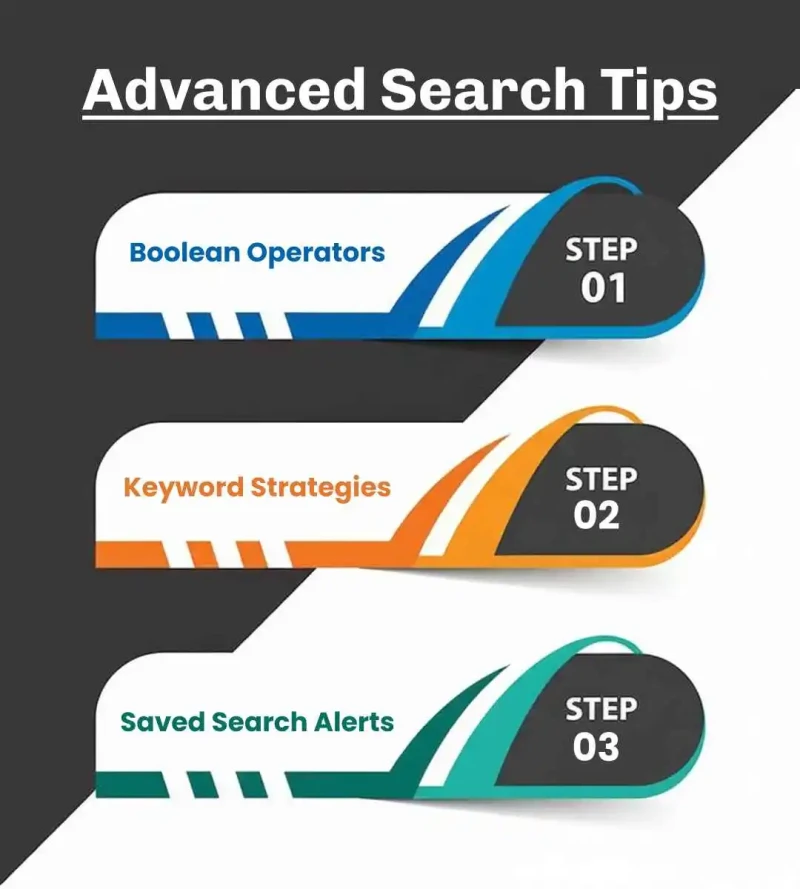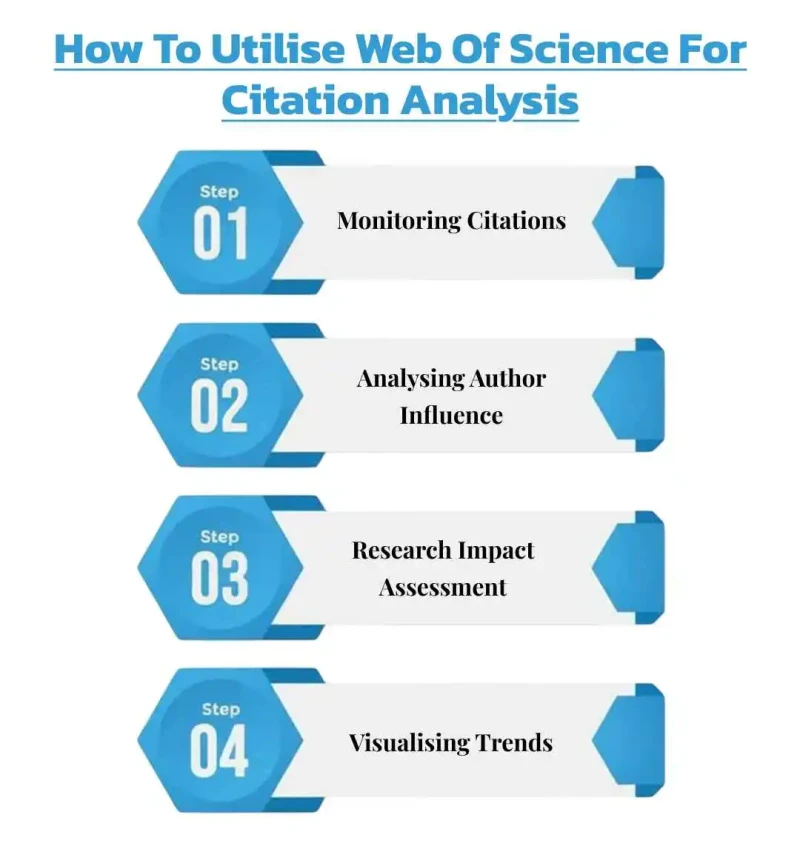Importance of Peer Review in Academic Publishing: Ensuring Research Quality and Credibility
Unlock the importance of peer review in academic publishing. Learn how to validate research, build credibility, and get your manuscript published faster

Williams
Publishing in a reputable journal is essential for researchers who want to build credibility and gain recognition in their academic field. Many scholars who are struggling to find trustworthy journals and slow career progress, which might be exhausting their research journey.
Indexed journals, especially those that are listed in the Web of Science(WoS), follow strict peer review standards and reach a wide audience. These journals enhance visibility and reputation, ensuring work has a greater impact. Web of Science journal search helps researchers quickly find suitable journals that match their study area.
This blog helps readers learn how to search for and identify impactful, indexed journals. It guides researchers in choosing journals that align with their research goals and maximise academic influence.
Web of Science (WoS) is a large and widely regarded research database owned by Clarivate. It gives access to multidisciplinary scholarly literature on facilitating researchers, academics and institutions to search, examine and monitor high-quality research in all academic disciplines.
WoS is centred on several citation indexes, each dealing with different research fields:
Science Citation Index Expanded (SCIE): This encompasses top-tier journals of natural science, engineering and technology.
Social Science Citation Index (SSCI): It targets high-impact journals in the social sciences.
Arts & Humanities Citation Index (AHCI): It covers high-impact journals in arts, literature and humanities.
Emerging Sources Citation Index (ESCI): It covers potential journals under review for impact, making them more visible.
The Web of Science database has a significant role in scholarly publishing:
Research Evaluation: Facilitates evaluation of journal, article, and author impact and quality based on citations.
Literature Review: Offers credible access to peer-reviewed literature for thorough scholarly research.
Academic Visibility: WoS indexing increases a researcher's credibility and the visibility of their work.
In general, WoS is a database and a tool that directs researchers to find influential studies, monitor trends, and benchmark scholarly influence across fields.
The application of Web of Science resources assists researchers in locating credible journals suitable for their research. Through filters, search queries, and the Master Journal List, you can locate appropriate publications within a brief period.
WoS Master Journal List assists you in identifying journals known for credibility and quality.
You can search by publisher, journal title, or ISSN to locate indexed journals that are in your area of research. This is a guarantee that your submission will be sent to suitably screened and very high-profile journals. For a comprehensive guide to finding indexed journals, consider reading our blog on Master Journal List to explore step-by-step instructions and tips.
Input the journal title or keywords to search for possible journals.
Verify which WoS indexes (SCIE, SSCI, AHCI, ESCI) cover the journal.
The verification is a guarantee of placing your research into a suitably indexed publication.
All indexes contain various fields that enable you to choose journals appropriate for your area of research.
Confirmation of index coverage contributes to consistency with the subject emphasis of the journal and visibility.
It also enables effective monitoring of your work in citation databases for assessment.
Filters enable you to limit searches by subject category, index scope, and publisher.
They enable you to weed out irrelevant journals and concentrate on those that are appropriate for your research.
By applying filters in an efficient manner, you save time and increase the chances of getting well-suited journals.
Once you’ve refined your results using basic filters, the next step is to focus on specific parameters such as subject area, index type, and publisher to narrow your journal choices effectively.
Select journals that publish research continually in your area of study. This brings relevance and acceptability prospects to your paper. It also makes your work reach the target audience and academic community.
Select journals from the WoS index that they belong to for credibility. Top-level indexes such as SCIE or SSCI signify strict peer review and impact. Index type assists in quantifying a journal's impact and visibility in your discipline.
Filter journals by well-known publishers for high scholarly quality. Steer clear of unknown or predatory publishers compromising credibility. This raises the integrity and scholarly value of your work.

Advanced search features filter results and let you monitor new publications effectively. Using these methods can save time and make your choice of journals better in quality. They also enable you to keep updated with trends and new journals in your area of research.
Use keywords with AND, OR, and NOT to filter or broaden search results. This makes the search more precise and relevant to your area of research. Boolean logic guarantees that related publications are captured comprehensively.
Add synonyms, acronyms, and variant terms for a comprehensive search. It raises the chances of getting all the relevant journals and articles. Strategic keyword use optimizes efficiency and effectiveness.
Set alerts to get updates on recently added journals or corresponding publications. This gets you informed without constant manual checking. It informs you on opportunities to publish your work
Selecting the ideal journal for your research is more than discovering indexed journals—it's assessing journal impact and relevance to make sure your work finds the right academic audience
Impact Factor (IF) is a common measure that indicates the average number of citations obtained by papers published in a journal within a given span. To use IF scores meaningfully:
Compare the IF of the journal with those of other journals in the same field to know the relative influence.
Take into account the citation patterns since some fields tend to have fewer citations.
Do not purely depend on IF; use it in combination with other indicators like h-index, Eigenfactor, or SCImago Journal Rank for a full snapshot of journal quality.
Quartiles are allocated to journals (Q1–Q4) according to their impact factor compared to other journals that publish related topics. Scholarly quartile rankings facilitate researchers to choose a journal's prestige, influence, and exposure.
Q1 journals are the top 25% of their category and are very prestigious. They tend to publish innovative research and have citation counts, making them highly competitive for manuscript publication.
Q2 journals are in the 25–50% range. They have good visibility and credibility and offer an adequate platform for influential research without the excessive competition of Q1 publications.
Q3 journals are in the 50–75% range. They enjoy a moderate level of influence and are generally appropriate for specialists or new subjects. Although the citation rates are less, they still offer a workable avenue for communicating research.
Q4 journals fall in the bottom 25% of quartiles. They typically hold new journals or those with fewer citations. Even though weaker, Q4 journals are useful to assist authors in becoming visible in new or niche spaces of study.
Knowledge of quartile ranks aids scientists in making smart choices about where to publish to be congruent with viewable, cite, and academic achievement goals.
Choosing journals in your field of research is important to be noticed and accepted in the academic research journey:
Use journals that frequently publish research in your particular subject field.
Check recent publications to determine if studies like yours are included.
Use interdisciplinary journals if your work covers more than one field.
Selecting journals with the same scope as your research makes it more likely to be accepted and viewed by the target academic audience.
Choosing an appropriate journal is important to make your research reach the right audience and gain maximum impact. Various tools and resources can make the process simpler and help you make the right choice.
Journal Citation Reports (JCR) is a useful tool for assessing journals on the basis of precise metrics. It offers insights to enable researchers to find high-impact journals and determine their relevance.
Example: If your research covers climate modeling, JCR helps you find which Earth science journals have rising citation trends. This lets you target journals where your topic currently gains visibility.
JCR gives you the impact factor, overall citations, and other important metrics for every journal, so you can assess its influence in the subject area.
It also indicates quartile ranks, enabling you to rank journals by the same subject category and get an idea of relative prestige.
You can compare journals within complementary disciplines, so your research can be submitted to journals that serve your area.
Manuscript Matcher is a Web of Science application that assists researchers in finding journals most appropriate for their manuscript, enhancing acceptance possibilities and enhancing research visibility.
Example: Suppose your research focuses on sustainable materials for solar energy. When you upload your abstract and keywords, Manuscript Matcher identifies journals such as Renewable Energy or Journal of Materials Chemistry A that regularly publish on similar topics, saving you hours of manual searching.
The application examines your abstract and keywords to match your manuscript with journals publishing related topics, ensuring journal scope alignment.
It assesses which journals are most apt to be a good match, making it more probable that your submission will be reviewed and subsequently accepted.
For extra assistance, researchers can pair Manuscript Matcher with expert assistance with Web of Science journals to make informed choices about where to publish their research.
Third-party sites offer worthwhile data outside the Web of Science database, assisting researchers in assessing journals better.
WoS Journal Info is a standalone service that provides descriptive metrics, indexing information, and journal policies to inform journal appropriateness assessment.
Dimensions is an extensive scholarly database introduced by Digital Science. It covers journal articles and citation numbers, and thus represents a new potential source of impact information.
OpenAlex is a bibliographic index of scientific articles, authors, institutions, venues, and concepts. It went live in January 2022 and is a rival to commercial offerings like Clarivate's Web of Science or Elsevier's Scopus.
J-Gate is a bibliographic database to access global e-journal literature. It holds abstracts, citations, and full-text access for all Open Access journals and other important details from academic journals.
Scopus is a scholarly abstract and citation database for academic research. It includes a broad range of disciplines and offers tools for citation analysis to assess the impact of journals.
Leveraging these third-party platforms together with WoS resources offers valuable guidance for journal evaluation, particularly when relying on expert help with Web of Science journals to make well-informed selection decisions.

Web of Science provides robust tools to monitor citations, analyse author impact, measure research impact, and visualise trends, so that researchers can find the extent and importance of scholarship.
Web of Science enables you to monitor articles continuously being cited, whereby you can find leading papers and newer lines of research in your area.
The site assists you in finding key authors based on analysis of what they have done, their historical citations, and their h-index, which provides a measure of significant contributors and potential collaborators.
WoS allows scholars to measure the scope and impact of journals and papers using citation metrics and impact factors to inform publishing strategy.
Through the use of citation maps and co-citation networks, WoS facilitates research trend visualisation, co-authorship networks, and emerging topics for strategic planning
Investigating high-impact journals listed in Web of Science enables researchers to recognise what determines some publications to be highly impactful, well-read, and academically esteemed throughout disciplines.
CA-A Cancer Journal for Clinicians is noted for having an incredibly high impact factor and significance to oncology studies. It releases authoritative reviews, clinical guidelines, and updates that affect research and clinical practice globally.
Nature Reviews Microbiology is one of the leading journals in microbiology, with a wide international readership. The journal's high rates of citation are an indicator of the journal's contribution to the scientific conversation and sharing of leading-edge research.
Journal of Optics (India) is an Indian regional Web of Science-indexed journal with good publication statistics and visibility. It is a key optics research platform with international credibility through WoS indexing.
Suitable journal choice ensures that your work finds its intended audience, is viewed, and creates a valuable contribution to the world of academia. Web of Science-indexed journals provide a trustworthy measure of peer review and access.
Journal selection starts with knowing its topic of interest and purpose. Make sure the scope and purpose of the journal closely align with your research question to improve the chances of approval and usability.
Read and analyse the recent issues to know whether your topic is favoured with themes, methods, and viewpoints of the journal
Submitting papers to mismatched journals may lead to rejection. So, always check if the journal’s scope fits your topic before you submit.
Who your journal is addressing determines how it will read and cite your research. Think about the readership profile and dissemination potential to ensure your research achieves its desired impact.
Think about whether the journal is aimed at academics, practitioners, or interdisciplinary readers within your discipline.
Select journals with a global readership for greater exposure and inter-disciplinary debate.
This ensures your research reaches diverse audiences, enhancing visibility and scholarly impact across multiple fields
All journals have particular author guidelines. Carefully read review procedures, deadlines, and formatting instructions beforehand to ease the publishing process.
Verify citation formats, manuscript length, and figure or table formatting instructions to prevent unnecessary delays.
Understand the peer review process of the journal and deadlines to schedule your publication accordingly.
Provide fee-free global access, enhance visibility and citation. Careful check on APCs and reputation to prevent predatory publishers.
These are journals which follow traditional publishing models and have strong reputations backed by peer review. Access may be limited to subscribers, but they carry significant prestige and academic influence.
Choosing the right journal must be done with caution. Avoid these common pitfalls for the best opportunity for acceptance and more publications.
A common misconception is equating a high impact factor with journal quality. The impact factor only reflects how frequently articles are cited, not the actual quality or relevance to your work.
In the event that your manuscript is irrelevant to the journal, it is highly likely that it will be rejected. Therefore, it is really important to take a look at the "Aims and Scope" section and check out recent issues. One of the quickest routes to rejection is submitting something that is not within the journal's focus or interest group.
Journals usually impose particular requirements regarding formatting and ethics, and these must be observed very carefully. If you do not meet them, your work might not even get to the peer-review stage.
Using this awareness of common errors, researchers will be able to make informed decisions, aligning their work in line with suitable journals and more accessible to the academic world.
Choosing an appropriate indexed journal is key to making your research visible and acknowledged as it should be. An ideal journal increases credibility, visibility, and overall impact on academia.
Researchers are urged to employ Web of Science tools to make wise, data-informed publication decisions. By examining metrics, citation trends, and journal rankings, you are able to determine the optimal platforms that align with your research study's objectives.
Begin your journey today and find journals in Web of Science with our help to publish with confidence and make your research actually impactful.
Unlock the importance of peer review in academic publishing. Learn how to validate research, build credibility, and get your manuscript published faster
Master the top methods of primary data collection in research methodology. Learn to use surveys, interviews, and experiments to gather original, high-quality data.
Don’t write your methodology without reading this. Learn why purposive sampling is essential for case studies and how to define your inclusion criteria. Url:purposive-sampling
Master the chapterization of thesis to ensure logical flow. Learn the standard academic framework for organizing research into a professional, approved document.
A practical guide to sentiment analysis research papers covering methodologies, datasets, evaluation metrics, research gaps, and publication strategies.
Master data analysis for research papers. Learn quantitative and qualitative methods, cleaning, and reporting standards to ensure your study meets journal rigour.